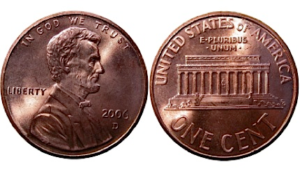The Universal Intelligence in all of it’s infinite glory designed a creation of unlimited excellence.  Within Man, lies the seeds of perfection as well as self-destruction. Within the mind of man is the crystallization of everything that was and everything that can be. Nothing has been or will be physically manifested into this world of man except by or through the mind of man. This requires a harmonious mental/emotional environment to assist in developing in a natural and creative state through reason. The mathematical decisiveness of the reasoning abilities of man stand as judge and jury in his logical upward development. Reason is the stairway to logic. Reason must follow a path of subjective and objective contemplation to arrive at a logical summation.
Within Man, lies the seeds of perfection as well as self-destruction. Within the mind of man is the crystallization of everything that was and everything that can be. Nothing has been or will be physically manifested into this world of man except by or through the mind of man. This requires a harmonious mental/emotional environment to assist in developing in a natural and creative state through reason. The mathematical decisiveness of the reasoning abilities of man stand as judge and jury in his logical upward development. Reason is the stairway to logic. Reason must follow a path of subjective and objective contemplation to arrive at a logical summation.
Reason is attracted to a collage of variable shades of inter-connecting levels of experiences, choices, thoughts, beliefs, and actions. Reason then interprets, and emotional pulsations create within the mind only what we can comprehend at that point of our life. There is an emotional and intellectual metamorphosis that we go through as we journey through life experiences.
Reason has many aspects such as informal and formal processing. Formal reasoning describes the process and stages of utilizing the science of deduction, while informal reasoning derives through critical and rational evaluations. Deductive reasoning is an argument for a truth upon conclusion based on fact or that which is assumed fact. Inductive reasoning formulates general statements based on general observations, recurring patterns, and degrees of probability, all based on informal logic or critical thinking.
It matters not the path taken since rationality is the goal of all thinking men. A man who is striving to be of a rational nature and should instruct his powers of the mind to arrive at logical conclusions. The road to becoming a rational and logical person is clustered with major distractions such as emotional choices. When reason is called upon, it must gather and intelligently express itself through the emotions and the values, all the while borrowing from the knowledge and experiences to arrive at a logical point of view.
Reason is pure in its original state of neutrality. First there is thought which triggers an emotion either positive or negative. That emotion scans your value system to see if you agree or disagree with the thought and/or emotional feedback. Then your knowledge/experience begins to support your choice, and you may begin to reason your position. Actions reflect thought, and thought is reflected by your rational or irrational behavior or actions in a given situation, be it reasonable or unreasonable.
The mind of limited resources (knowledge) has a limited reasoning ability, as the conclusions of any individual will be in direct relationship with that person’s knowledge base and that which supports it. Knowledge impacts the direction and position of one’s point of reference. To expand the knowledge/experience is to expand an unseen inconceivable reasoning power. The mind must filter through our value system all the information intake that it is exposed to. After this filtration it goes through a process that assigns values or categories such as importance, beliefs or fears. Your individual reasoning abilities begin to take shape. The relationship between knowledge and reason can even be seen in infants. Before we have accumulated knowledge, we experience instinctual reasoning, which is derived from our five senses of touch, taste, smell, sight, and hearing. Everything we perceive through the senses is categorized within our system of importance in order to strengthen our elementary foundation and our reasonable actions. Imperfection lies in Man’s ignorance. The will of man has multiple value functions to strengthen positive actions or to derail negative actions. This is done in harmony for accomplishing a goal while communicating with the inner voice of reason. The will power places itself over reason to help instill self-discipline and self-control. The power of the will controls all inhibitions and directs the thoughts and actions on a path of mutual innate reasoning.
The survival of man depends on a mastery of his mental faculties and skills. Reason is a rational means to adding or eliminating information to assist one to arrive at a logical point of view, not only with problem solving but also in creative/critical thinking. Reason must be treated with pure honesty since reason can and may justify any deed that we deem to be of a vital nature. Reason has no intelligence of its own, it is merely relative to the individual, borrowing from the cumulative value system, which fluctuates with growth. Learning how to arrive at logical conclusions, judgements, and form intelligent arguments, that are structured on solid foundations, is the fundamental use for reason. The mental powers of man require a complex interdependent weaving of contemplation, and reason is but one faculty of the mind’s mental process. Reason allows man to interact with the physical and the mind’s non-physical realm. Through reasoning power, there is an ignition of magnetic attraction for creativity and intuitive knowing leading to an intellectual “lighting of the way” through man’s conscious, super-conscious and subconscious mind to arrive at higher states of wisdom, comprehension, sensing, and knowing.